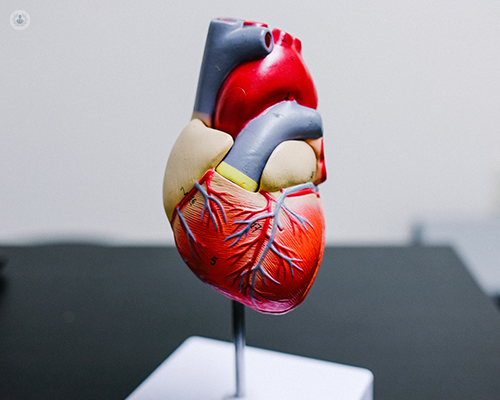What are the red flags for heart palpitations?
Written in association with:Heart palpitations are sensations where the heart feels like it's pounding, fluttering or beating irregularly. While they’re often harmless, certain red flags may indicate a more serious underlying condition that requires medical attention.

What are the red flags to watch for with palpitations?
If you experience heart palpitations alongside any of the following symptoms, it’s essential to seek urgent medical advice:
- Chest pain or discomfort: Pain, tightness, or pressure in the chest could signal a heart-related issue, such as angina or a heart attack.
- Shortness of breath: Difficulty breathing or feeling out of breath, especially at rest, may indicate heart or lung problems.
- Dizziness or fainting: Feeling lightheaded, dizzy, or losing consciousness can suggest inadequate blood flow to the brain, often linked to abnormal heart rhythms.
- Rapid or irregular heartbeat: A consistently fast heart rate (tachycardia), slow heart rate (bradycardia), or irregular rhythm may point to arrhythmias like atrial fibrillation.
- Severe fatigue: Unexplained and extreme tiredness, especially when combined with palpitations, can be a sign of heart failure or anaemia.
- Sweating and nausea: Excessive sweating, nausea, or vomiting alongside palpitations could be associated with a cardiac event.
What are the conditions linked to palpitation red flags?
Red flag symptoms accompanying heart palpitations may point to more serious conditions, including:
- Arrhythmias: Conditions like atrial fibrillation, ventricular tachycardia or heart block.
- Coronary artery disease: Reduced blood flow to the heart can cause palpitations and other symptoms like chest pain.
- Heart valve disease: Malfunctioning heart valves can affect blood flow, leading to palpitations and dizziness.
- Thyroid disorders: Overactive thyroid (hyperthyroidism) can cause a rapid or irregular heartbeat.
When should I seek medical advice for heart palpitations?
If palpitations occur frequently, last more than a few minutes, or are accompanied by any of the above red flags, seek immediate medical care. Even if symptoms seem mild, persistent palpitations warrant evaluation by a healthcare professional to rule out any underlying concerns.
How are heart palpitations diagnosed?
Your doctor may recommend tests to investigate the cause of palpitations, such as:
- Electrocardiogram (ECG): Measures the heart's electrical activity.
- Holter monitor: A portable ECG device worn for 24–48 hours to capture irregular rhythms.
- Echocardiogram: An ultrasound scan to assess heart structure and function.
- Blood tests: To check for conditions like thyroid disorders, anaemia or electrolyte imbalances.
While occasional palpitations are often harmless, recognising red flags ensures that serious heart conditions are detected and treated early.


